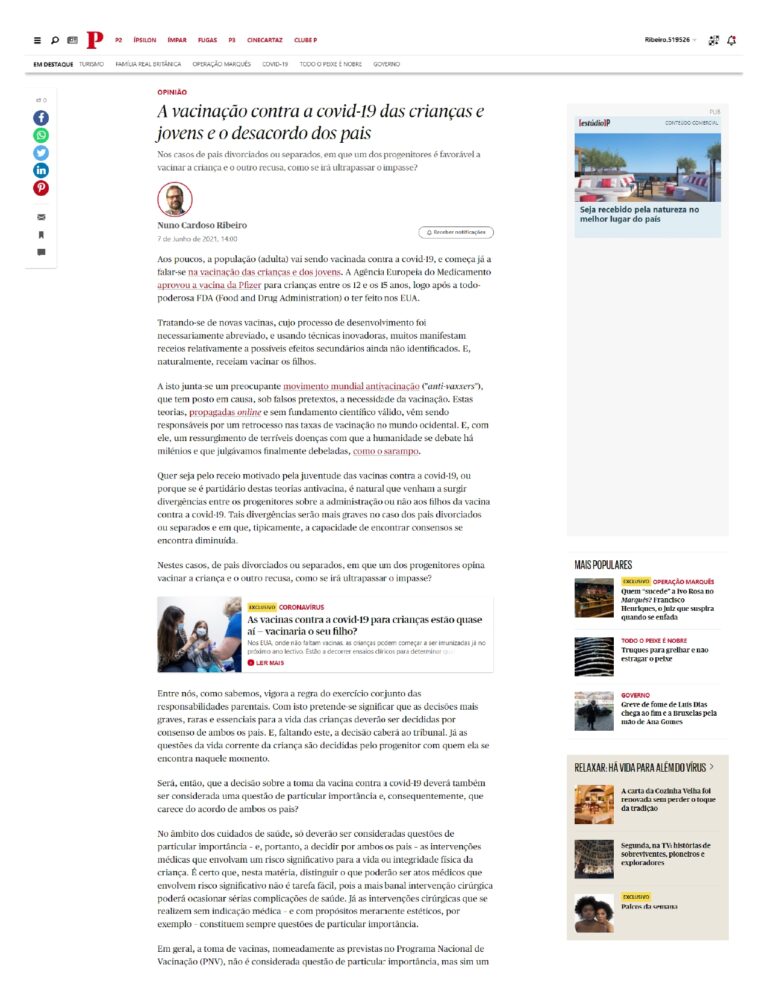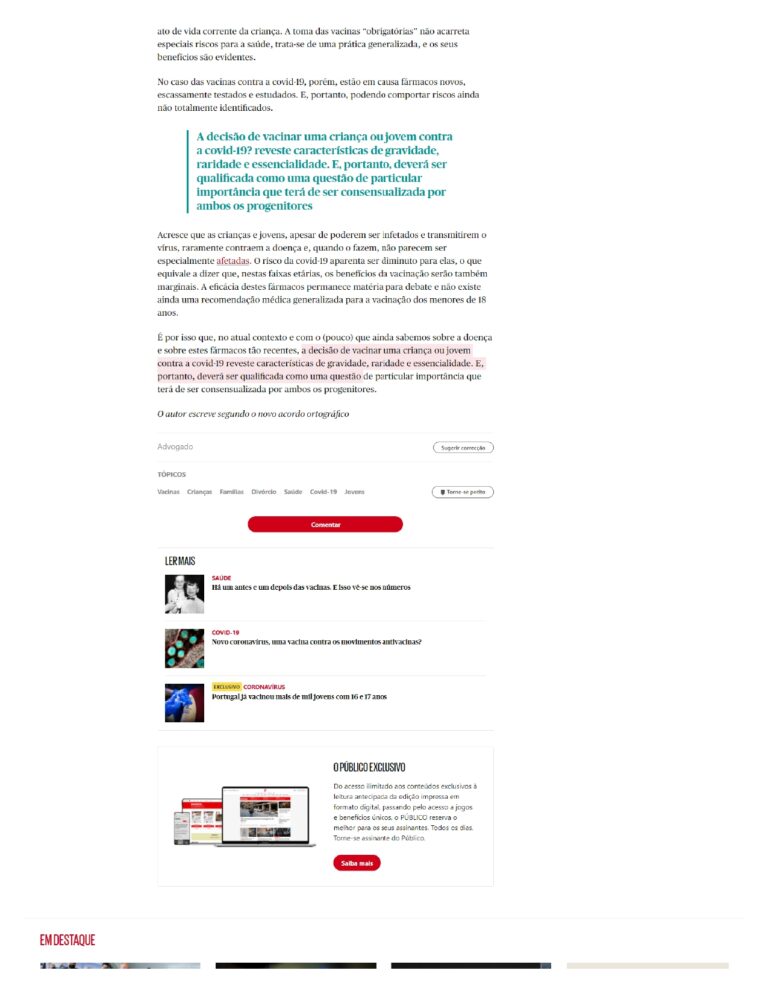Opinion article by our coordinator, Nuno Cardoso-Ribeiro, in the Público of 07/06/2021 the vaccination against covid-19 of children and young people and the disagreement of parents. Read the article on the Público website or the pdf translation below:
“Vaccination against covid-19 of children and young people and the disagreement of parents
In cases of divorced or separated parents, where one parent is in favor of vaccinating the child and the other refuses, how will the impasse be overcome?
Gradually, the (adult) population is being vaccinated against covid-19, and there is already talk of vaccinating children and young people. The European Medicines Agency has approved Pfizer’s vaccine for children between the ages of 12 and 15, right after the all-powerful FDA (Food and Drug Administration) did so in the USA.
Since these are new vaccines, whose development process was necessarily shortened, and using innovative techniques, many are concerned about possible side effects that have not yet been identified. And naturally they are afraid to vaccinate their children.
Added to this is a worrying worldwide anti-vaxxers movement, which has called into question, under false pretenses, the need for vaccination. These theories, propagated online and without valid scientific basis, have been responsible for a setback in vaccination rates in the Western world. And, with it, a resurgence of terrible diseases that humanity has been fighting for millennia and that we thought had finally been eradicated, such as measles.
Whether it is fear motivated by the youthfulness of the covid-19 vaccines, or because one is a supporter of these anti-vaccine theories, it is natural that disagreements will arise between parents about whether or not to give their children the covid-19 vaccine. Such disagreements will be more serious in the case of divorced or separated parents, where the ability to find consensus is typically diminished.
In these cases of divorced or separated parents, where one parent chooses to vaccinate the child and the other refuses, how will the impasse be overcome?
Among us, as we know, there is the rule of joint exercise of parental responsibilities. This is intended to mean that the most serious, rare and essential decisions for the child’s life should be decided by consensus of both parents. And, failing that, the decision will be made by the court. Matters of the child’s everyday life, on the other hand, are decided by the parent the child is with at the time.
Should the decision about the vaccination against covid-19 also be considered a matter of particular importance, and therefore need the agreement of both parents?
In health care, only medical interventions that involve a significant risk to the child’s life or physical integrity should be considered matters of particular importance, and therefore decided by both parents. It is true that, in this matter, distinguishing what may be medical acts that involve significant risk is not an easy task, as the most common surgical intervention may cause serious health complications. On the other hand, surgical interventions that are performed without medical indication – and for merely cosmetic purposes, for example – always constitute issues of particular importance.
In general, taking vaccinations, namely those foreseen in the National Vaccination Program (PNV), is not considered a matter of particular importance, but rather an act of everyday life for the child. Taking the “mandatory” vaccines does not carry any particular health risks, it is a widespread practice, and its benefits are evident.
In the case of the covid-19 vaccines, however, these are new drugs that have been little tested and studied. And therefore, they may carry risks that have not yet been fully identified.
In addition, children and young people, although they can be infected and transmit the virus, rarely contract the disease, and when they do, they do not seem to be particularly affected. The risk of covid-19 appears to be small for them, which is to say that in these age groups the benefits of vaccination will also be marginal. The effectiveness of these drugs remains a matter of debate, and there is not yet a general medical recommendation to vaccinate those under the age of 18.
This is why, in the current context and with the (little) we still know about the disease and about these very recent drugs, the decision to vaccinate a child or youngster against covid-19 has serious, rare and essential characteristics. And, therefore, it should be qualified as a matter of particular importance that must be consensualized by both parents.”

